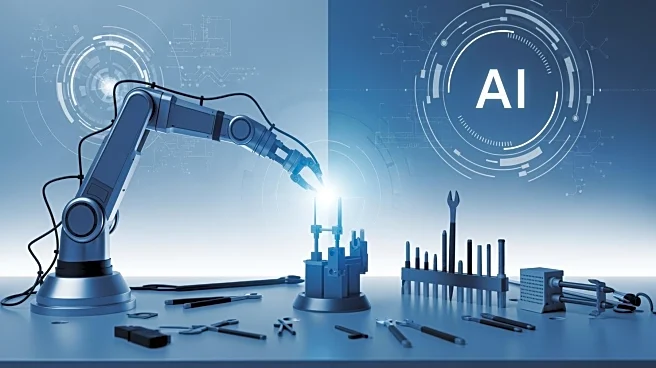What's Happening?
AI technology is increasingly being integrated into various engineering fields, serving as a tool similar to finite element analysis or computerized performance prediction. While AI can be extremely useful
when applied correctly, it is not inherently brilliant and often lacks the ability to innovate without human guidance. The technology functions as a global bookkeeper, organizing collective knowledge but struggling with novel ideas. This was exemplified when AI was used to edit a historical fiction piece, resulting in a loss of the author's intended narrative and depth. The author, Rik van Hemmen, experienced AI's limitations firsthand when attempting to use it for readability edits, which led to the deletion of critical trade discussions in his work.
Why It's Important?
The integration of AI in engineering and creative fields highlights the balance between technological assistance and human creativity. While AI can streamline processes and manage information efficiently, it cannot replace the nuanced understanding and innovation that human effort brings. This underscores the importance of human oversight in AI applications, particularly in areas requiring creativity and historical accuracy. Industries that rely heavily on AI must recognize its limitations and ensure that human judgment remains central to decision-making processes. The reliance on AI for editing and content creation could lead to homogenized outputs, potentially stifling originality and depth in creative works.
What's Next?
As AI continues to evolve, industries will likely explore ways to enhance its capabilities while maintaining human oversight. The challenge will be to develop AI systems that can better understand and preserve the intent and complexity of human-created content. This may involve refining AI algorithms to recognize and retain critical narrative elements in creative works. Additionally, there may be increased focus on training AI to support rather than replace human creativity, ensuring that technological advancements complement rather than overshadow human contributions.
Beyond the Headlines
The ethical implications of AI in creative fields are significant, as the technology's ability to alter narratives raises questions about authorship and originality. The potential for AI to homogenize content could impact cultural diversity and the representation of historical events. As AI becomes more prevalent, there will be ongoing discussions about its role in preserving cultural heritage and ensuring diverse perspectives are maintained in creative works.










